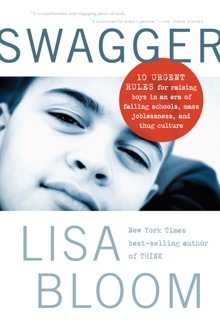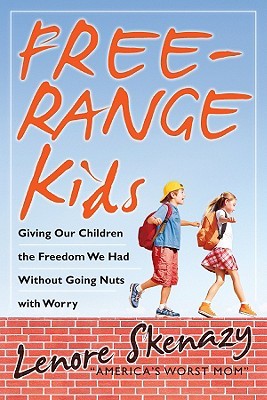Last week, I finally scheduled my oral surgery. This is an accomplishment, dear readers.
It sounds like such a simple, little thing. Just pick up the phone, dial the number, compare calendars and presto! All done! But it was mentally and emotionally taxing for me. There were tears before the phone call was made and mint chocolate chip ice cream (with chocolate syrup) after. You see, making that phone call required acknowledging the inevitability of the surgery (which I'd certainly done verbally multiple times, but putting it down on the calendar, committing to be in a certain place at a certain time for the express purpose of being operated upon is a whole nother level of acknowledgement). The trauma from the initial car accident seems to have left some psychological scars that I never really dealt with and, frankly, were doing just fine staying buried until the prospect of this new surgery dredged them all up again.
Apparently, it's not normal to get teary-eyed and choked up every time one hears sirens. Who knew?
While I'm grateful for anesthesia and sedation, I hate the idea of not having control over myself as well as not having any memory of what happens. A residual aversion, perhaps, related to my concussion-induced lack of memories surrounding the now twenty-year-old event? Last summer I had one tooth extracted and, boy, does my husband have some entertaining stories about his wife while she's under the influence... (Don't go looking for video evidence, though; I told him that he was welcome to disseminate all the amusing anecdotes about my drug-induced hilarity he wanted, but the second a video camera came out we would have severe marital discord. Wise man didn't test my resolve on that issue.)
I don't think I'm a particularly vain person, and I've used the gap from my one missing tooth (usually well concealed by the temporary flipper, also known as a "partial denture" - yes, I'm 34 years old and I wear dentures!) to humorous effect over the last few months. But after this surgery I will be missing five teeth. Five whole teeth. That's a completely different tier of visual assault on the unsuspecting. One missing tooth can be funny; five borders on ghastly.
That sounds really melodramatic, I know, and there is so much real tragedy in this world I feel quite selfish and short-sighted typing something like that. But for me, even thinking about missing those five teeth takes me right back to the night of the car accident when those teeth were gone.
: : :Trigger warning: : :
car accident, traumatic injuries, emergency response
(This may get a bit gruesome. Feel free to go look at some
amusing pictures of cats
or watch some
Bad Lip Reading videos instead of reading my therapeutic brain vomit.)
My memories of that day, and several days after, are fuzzy at best, brief flashes of sensory images. My two brothers and I were on our way from my older brother's Eagle Court of Honor to a church dance, my younger brother's first one. My older brother was driving, my younger brother was in the front passenger seat, and I was right behind him. I still feel inexplicably guilty about ruining what should have been my older brother's most triumphant evening, and my younger brother's exciting rite-of-passage, not to mention his birthday, which was the next day.
I remember loud metal-on-metal screeching and crashing and a fantastic impact.
I remember it was a cold December evening, icy and chilly, but with absolutely no wind.
I remember after the impact, hearing my older brother calling my name in an increasingly panicked tone, and me wanting to respond but just not being able to. And I remember hearing my younger brother telling us both it would be okay.
I remember flashing lights in my peripheral vision, but seeing absolutely nothing straight in front of me.
I remember a man's soft, Southern-accented voice, calling me "darlin'" and strong, gentle hands helping me out of the car.
I remember someone asking if I'd been wearing my seat belt and my indignant, if unintelligible, response that I *always* wore my seat belt.
I remember laying on a hospital gurney with my family around. I couldn't see them, but I knew they were there.
I remember asking for my older brother, feeling him put his fingers in my hand, and grasping them, repeating over and over, "It's not your fault. It's okay, it's not your fault."
I remember exploring my mouth with my tongue and feeling so confused. My bruised brain just couldn't process where my teeth had gone. I remember thrusting my tongue out through the gash in my chin where my bottom teeth had sliced completely through. And I remember the frantic response by the people around me urging me to put my tongue back in my mouth.
I remember flinching violently and feeling like my insides were on fire when someone pushed lightly on my stomach. That was the indication of my serious internal injuries that led to the abdominal surgery that saved my life.
I remember waking up groggy, seeing a crucifix hanging on the wall, and my mother sitting in a chair close by my hospital bed. I asked her what happened and she told me there had been a car accident. I later learned that I had asked her that question a dozen times or more, every time I woke up.
I remember having a slight cold in the days after the accident and every time I coughed feeling like my gut was going to come spilling out the stapled incision that dissected my abdomen, detouring around my belly button. Clutching a pillow tightly to my stomach helped to keep me together and provided some relief. Laughing was absolute torture.
I remember asking for a mirror and again and again being told no and thinking "Wow, I must look absolutely horrendous if they don't want me to see myself." And when I finally did get to look in a mirror discovering it wasn't nearly as bad as I'd feared.
I remember not breaking down until I was home, a week or so after the accident. My mouth felt cottony and slimy because I hadn't been able to brush my teeth in at least a week. It was the first time I tried to use a water-pik. My gums were still so raw that even on the lowest setting the stream of water set them bleeding and I collapsed on the bathroom floor wailing, or at least trying to wail, through my wired-shut jaw. My mother joined me and we sobbed together for a while until our tears were totally spent.
So many things are a blur or I think perhaps I "remember" them because I was told about them later. I know people came to see me in the hospital, but I only remember a couple of specific visitors. I felt loved. I know I received a priesthood blessing from my dad and our home teacher, a blessing that was fulfilled in every particular. I know many people waited in the waiting room for hours, sent flowers, cards, balloons, positive thoughts and love my way. A substitute teacher at the high school organized his entire Southern Baptist congregation - none of whom knew me - to fast and pray on my behalf. My ward did, too.
I am blessed to be surrounded by people who love me and will take care of me, to have access to the medical and dental services that saved my life twenty years ago and will result in an
incredibly fabulous (and expensive) smile by the time this process is over. And I know I'm all right. And I know I'll be all right. Accepting that I'm not indestructible, that I'm not impervious to harm, and that sometimes trauma has lasting effects, is not the end of the world. Vulnerability is scary - terrifying, really - but it's also humanizing. And ultimately, it has a softening effect that makes us more pliable, more empathetic, more gentle with others. That's why we're here, isn't it?














